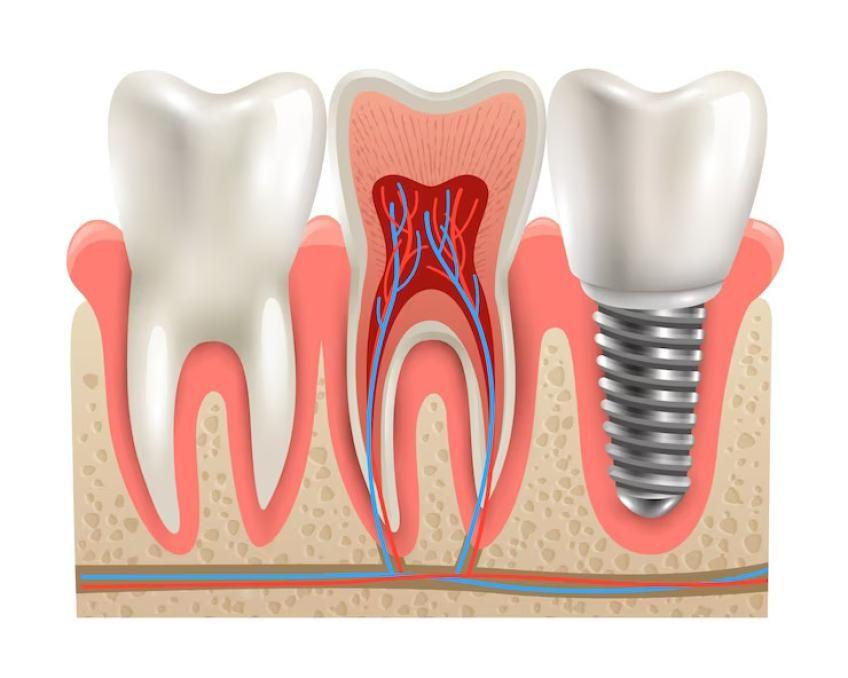How to prepare for dental implant surgery?
How to prepare for dental implant surgery?
Dental implants are a common and effective method of replacing missing teeth. A small titanium post is inserted into the jawbone to serve as an anchor for a replacement tooth. While dental implant surgery is considered safe, patients should do a few things to prepare for the procedure. In this blog, we'll go over what to do before dental implant surgery to get the best results.
The first step for patients before undergoing dental implant surgery is to consult with their dentist. The patient's mouth will be examined by the dentist to see if they are a good candidate for the procedure. A patient's candidature may be affected by factors such as jawbone strength and density, overall oral health, and any underlying medical conditions. If the dentist determines that dental implants are a viable option, he or she will explain the procedure as well as what patients can expect during and after the surgery.
Once a patient has decided to proceed with dental implant surgery, they must take several steps to prepare for the procedure. First and foremost, patients should maintain good oral hygiene in the weeks preceding surgery. Brushing and flossing on a regular basis helps to keep the teeth and gums healthy and clean. Patients should also schedule a professional cleaning with their dentist to ensure that there is no plaque or tartar build-up in their mouth. Oral hygiene is the practice of keeping one's mouth and teeth clean in order to avoid dental problems such as tooth decay, gum disease, and bad breath. Good oral hygiene is critical for overall health and well-being. Poor oral hygiene can cause tooth decay and gum disease, resulting in tooth loss, pain, and difficulty eating.
Antibiotics are a common medication that may be prescribed prior to dental implant surgery. Antibiotics are used to prevent infection, which is a serious risk of any surgical procedure. Antibiotics may be prescribed after surgery in some cases to prevent infection during the healing process. Pain relievers are another medication that may be prescribed prior to dental implant surgery. Because the surgery is typically performed under local anaesthesia, patients rarely experience pain during the procedure. However, patients may experience some discomfort following the procedure, which pain medication can help to manage. Patients may be prescribed medication to help manage any underlying health conditions in addition to antibiotics and pain medication. Patients with diabetes, for example, may need to carefully manage their blood sugar levels before and after surgery in order to promote healing and reduce the risk of infection.
Patients should ensure that they are in good physical health in addition to maintaining good oral hygiene. This includes eating a nutritious diet, getting enough sleep, and abstaining from alcohol and tobacco products. Patients should also inform their dentist about any medications they are currently taking, as some may interfere with the implant procedure.
If a patient smokes, another important step they should take before dental implant surgery is to quit. Smoking can impede healing and increase the risk of complications following surgery. To give their bodies time to heal, patients who smoke should stop at least two weeks before the procedure.
Patients should also make transportation arrangements to and from the dental office on the day of the procedure. Dental implant surgery is usually done under local anaesthesia, which means the patient is awake but numb during the procedure. Patients may still feel drowsy or disoriented after surgery, so they should be driven home by someone else.
Patients should wear loose, comfortable clothing and avoid wearing jewellery or makeup on the day of the procedure. Patients should also refrain from eating or drinking for at least six hours prior to surgery. This will aid in the prevention of nausea and other digestive issues that may occur following anaesthesia.
When patients arrive at the dental office, they will go through a series of pre-surgery procedures. X-rays or other imaging tests may be taken to assist the dentist in determining the best location for the implant. To avoid pain during the procedure, the dentist will numb the area with local anaesthesia.
The dentist will make a small incision in the gum tissue and insert the implant into the jawbone during the actual implant surgery. The implant will then be protected with a cap or screw, and the gum tissue will be stitched shut. After surgery, patients may experience some pain or discomfort, but this is usually manageable with over-the-counter pain medications.
Following surgery, patients must take certain steps to ensure proper healing and avoid complications. Antibiotics should be taken to prevent infection, hard or chewy foods should be avoided for the first few days, and ice packs should be used to reduce swelling and discomfort. Patients should also follow any additional instructions provided by their dentist, such as refraining from smoking or using special mouthwash.
To summarise, dental implant surgery is a safe and effective method of replacing missing teeth. Patients should, however, prepare for the procedure by practising good oral hygiene, quitting smoking, and informing their dentist of any medications they are taking. Patients should also adhere to all post-operative instructions.

